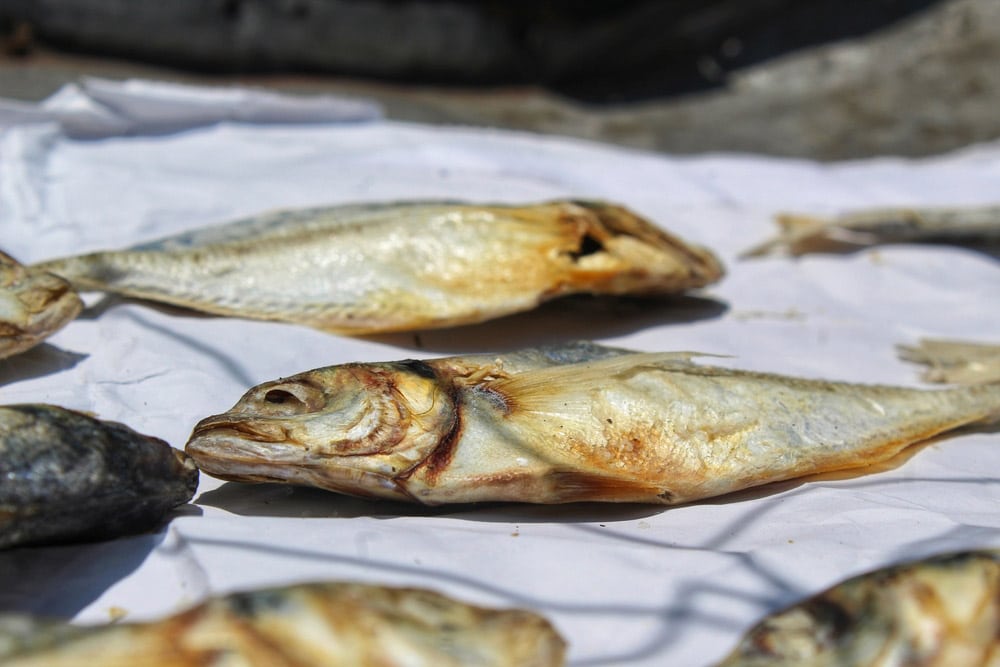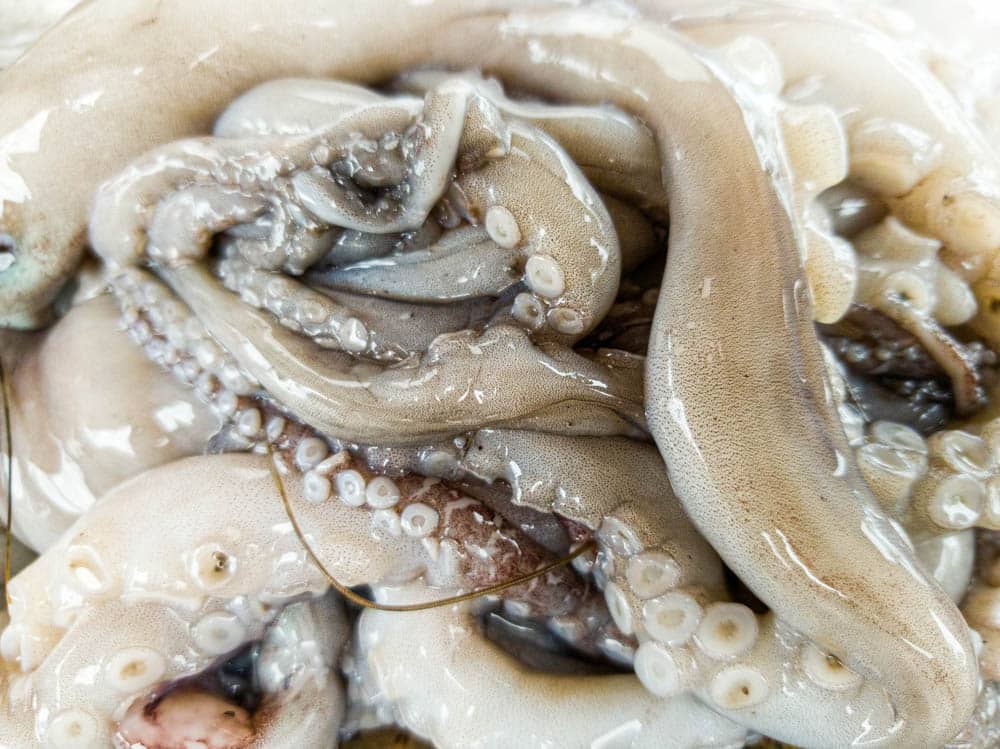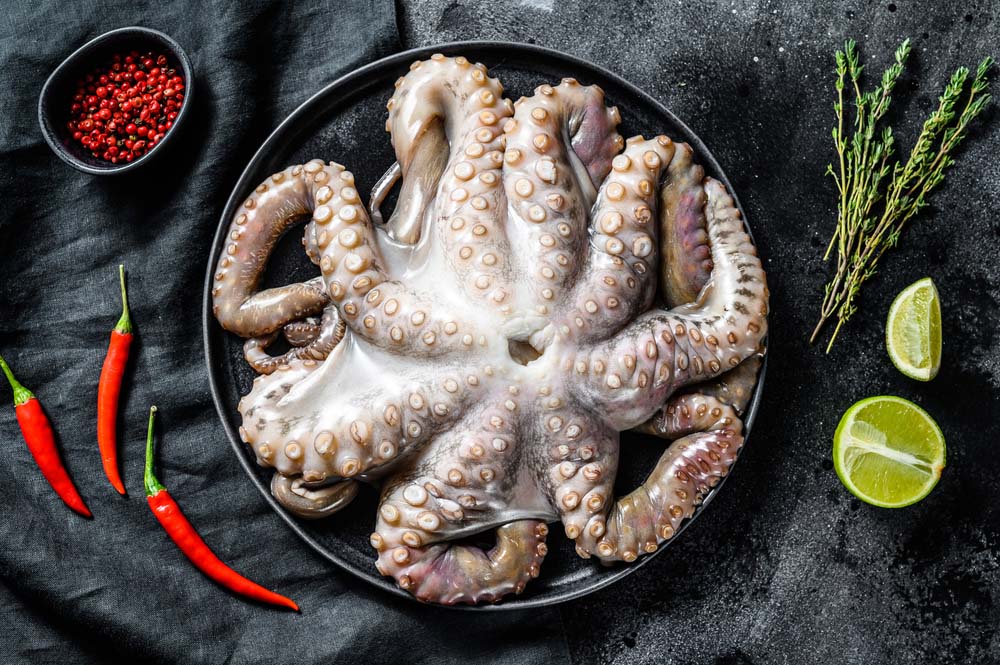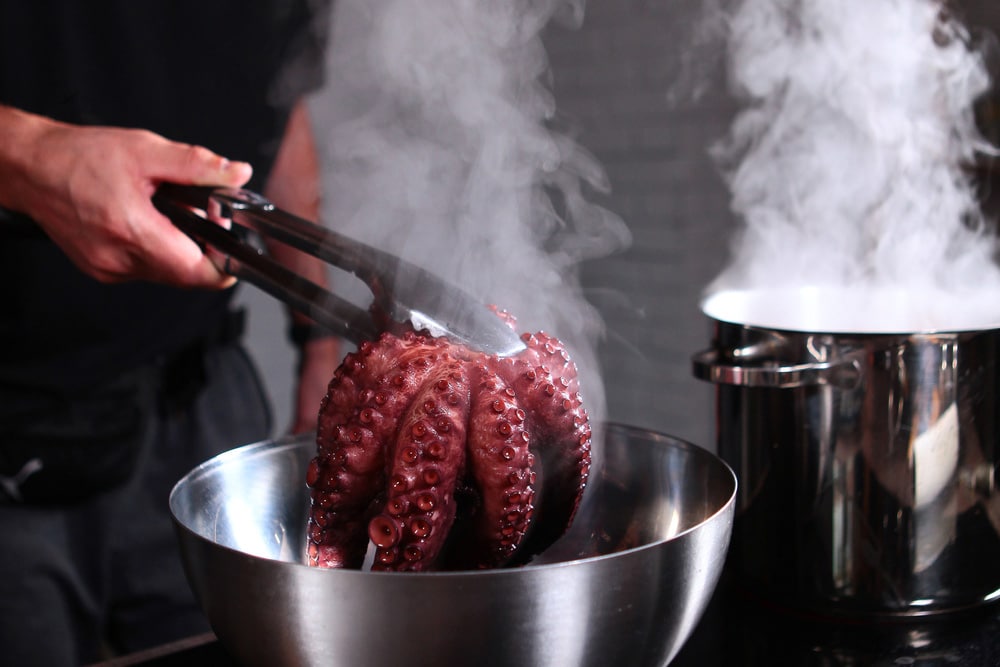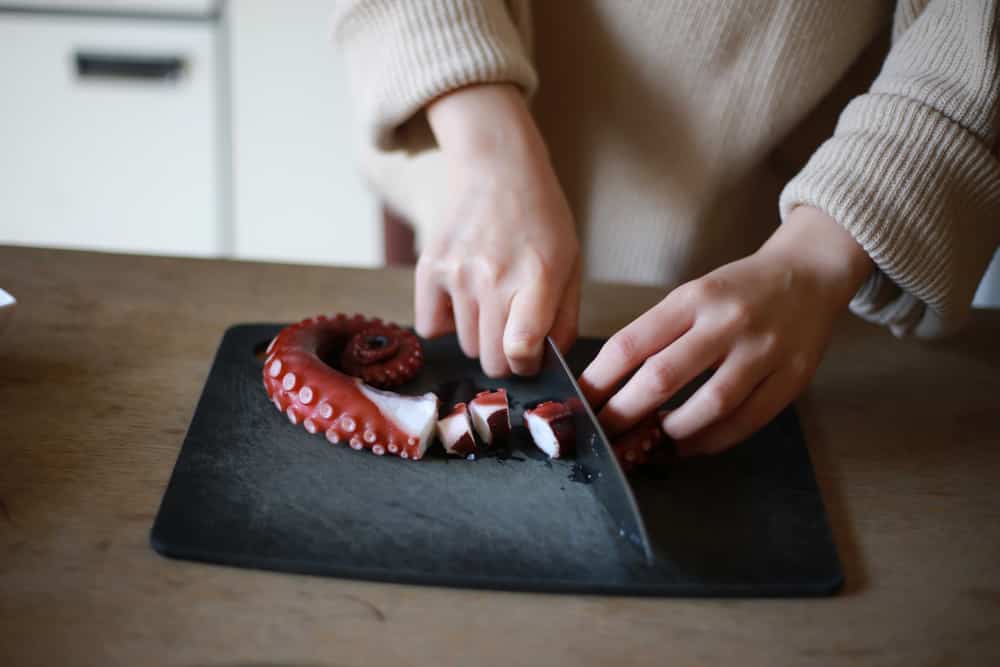
It’s sad that farming octopus for human consumption is catching on so much, because these sea creatures play an important role in bringing balance to the environment.
Nonetheless, for those that enjoy consuming octopus, it’s unbelievable that there are around 300 species of octopus, but not all the species are edible. The common octopus, Octopus Vulgaris, is the most commonly available octopus and the one considered the best for eating.
Octopus is considered a culinary delicacy, and thousands of tons go to Asian countries, with a growing demand for octopus in European countries as well. Octopus is sold to the public clean, with the guts removed. Various octopus products are sold, depending on the market.
It can be sold raw, frozen, or fresh. Octopus is mainly packed in polystyrene or plastic bags or trays, and sometimes in vacuum bags. However it is sold, no octopus should smell fishy. As a buyer of octopus, you have to know how to recognize an octopus that has gone bad.
After all, there are vendors of seafood products who sell and buy fresh octopus on the street, and if it wasn’t chilled immediately, you may be able to recognize that strong fishy smell of seafood gone bad. Some vendors skip out this chilling part, to the detriment of buyers.
Eating octopus with a fishy smell can be hazardous
Generally, eating thoroughly cooked seafood helps with avoiding any kind of food poisoning, but you have to figure out a way to avoid eating octopus that has gone bad so as to avoid the symptoms that can develop soon after eating contaminated seafood. The symptoms can include –
- Headache
- Redness in the face
- Blurred vision
- Tingling and burning sensations around the mouth
- Cramps
- Diarrhea
- Heart palpitations
The best way to avoid these most unpleasant symptoms, which can become dangerous, is to avoid eating octopus that you suspect has gone bad.
When octopus isn’t properly refrigerated, bacteria starts to break down the flesh, histamines are formed, and illness can occur even with octopus that is properly cooked.
Sometimes contaminated octopus doesn’t even show outward signs of spoilage, but when it thaws after buying it, it will have a bad odor. Any sea food that looks remotely spoiled or has an odor that you regard as suspect should not be consumed.
Seafood spoils quickly
Seafood spoils faster than beef or chicken, and unlike these meats, bacteria in spoiling seafood releases toxins that can’t be removed with cooking. With beef, for instance, stored glucose is converted to lactic acid, which protects the meat and delays spoilage for a number of hours.
Seafood, on the other hand, immediately starts to deteriorate as it doesn’t really store glycogen, from which lactic acid is produced for preservation. Seafood such as octopus also has a softer texture, which makes it susceptible to quick spoilage.
How to Tell if Octopus Has Gone Bad
Check the octopus-packaging sell-by date
Most supermarkets and fish markets carry frozen octopus, and it has to be fresh. Octopus can be kept frozen for several months in the freezer. Always check the expiration date on the packaging and make sure that the packaging isn’t damaged.
If the packaging is damaged, freezer burn can occur, which can influence the texture and taste. The taste of cooked octopus is likened to eating calamari, just more tender. You can eat octopus raw, but the most common way of cooking it is to simmer it in salted water.
First, bring the water to a boil, add the meat, and then reduce the heat immediately, simmering for about 60 minutes. Cooking it too quickly makes the flesh too rubbery. As it is, octopus flesh is tougher than the flesh of other cephalopods, so cooks have to be careful how they prepare octopus.
- Bad octopus has slimy texture
Apart from the rotten smell of the octopus, some people say that the octopus flesh takes on a slimy texture as it gets old and isn’t immediately refrigerated. It is always a wise move to stay away from octopus meat like this. Discard it instead.
Fresh octopus smells like the sea
Obviously, you want to be sure that your octopus is fresh, and the best way to test its freshness is to smell it. Just like fish from the sea, a fresh octopus will give off that typical saltwater aroma.
Octopus spoils quickly, so those who catch the soft, eight-limbed mollusc know that they have to follow high standards to ensure that the octopus sold to the public is fresh and without any aroma. The bad smell is indicative of flesh that is already decaying.
Learn about your octopus vendor, and only look out for those who sell thoroughly cleaned octopus that has been frozen soon after to ensure freshness and quality.
You don’t want to buy octopus from a suspect source, put it in the fridge, and discover a distinct bad smell that tells you that you won’t be enjoying octopus on the menu as you thought.
Figuring out how to tell if an octopus has gone bad? The answer is fairly simple. When an octopus has been freshly caught, it has a strong sea smell. If the octopus gives off a strong fishy smell, it shouldn’t be eaten.
The smell always a good indicator of freshness
When purchasing octopus, you must ensure that you are not wasting your money on bad octopus. Some fishmongers have no qualms about selling octopus that has not been properly refrigerated.
It can be tricky to steer clear of people trying to do you in, but when it comes to trying to buy and cook the best octopus, trust your nose to give you a clue—that’s all you can really rely on.

